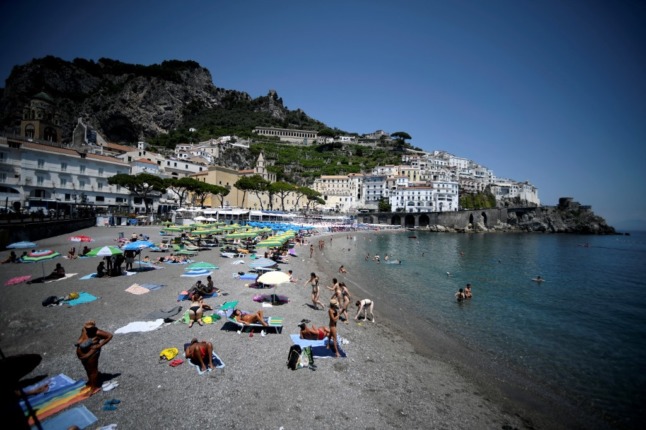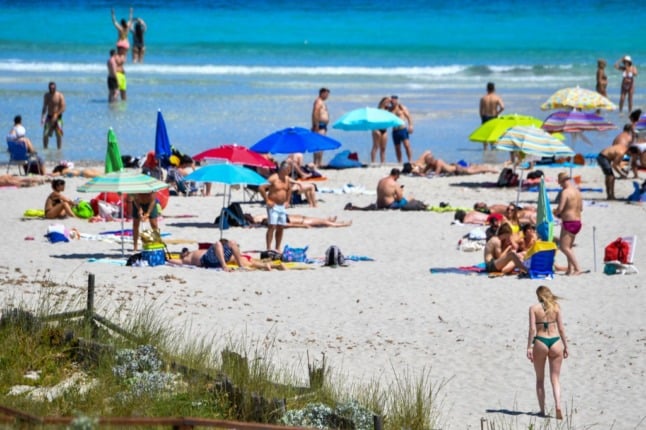“Everything will cost more this summer,” according to consumer association Codacons, which says it has been monitoring prices from petrol to ice cream.
“The picture that emerges is of a summer in which holidays cost significantly more than in 2020,” it says.
READ ALSO: What is Italy’s Covid-19 digital ‘green pass’ used for and how do you get it?
Italy’s tourism industry has been badly hit by 18 months of travel restrictions, and as it prepares to welcome back visitors from across the EU and North America this summer, businesses are still facing the additional costs of extra cleaning, getting up to code with safety precautions, and limits on capacity.
According to Codacons, at least part of those costs will be passed on to holidaymakers.
Bars and restaurants are raising their prices by around 5 to 10 percent compared to last summer, the association reports, while the charge to rent a sun lounger or umbrella on Italian beaches has increased by 5 percent on average – and as much as 40 percent in tourist hotspots on the Amalfi Coast.
Separate research by consumer study institute IRCAF recently found that June 2021 prices for two loungers and an umbrella ranged from €10 per day on some Italian beaches to a whopping €50 on others.
Across Italy prices have increased by around 4 percent on average for daily beach rentals and nearly 14 percent for weekly ones compared to the same month last year, IRCAF said.

Meanwhile hotels and other accommodation are not only charging higher rates, according to Codacons, but adding fees for flexible booking options, as holidaymakers worry they’ll have to cancel or postpone amid rapidly changing travel rules.
Airlines are using the same tactic, it says, with both regular and low-cost carriers cashing in on extra demand for refundable tickets, travel insurance and spaced-out seating.
Train fares have not gone up, but restrictions on how many seats can be filled mean that fewer promotions or discounts are on offer, the association says.
And filling up your car costs around 16 percent more than last year thanks to fuel price increases, with a full tank estimated to cost an extra €11 each time.
Car rentals were not included in Codacon’s study, but anecdotal reports from consumers suggest that some companies have been charging more to reflect the cost of deep cleaning vehicles.
READ ALSO:
- Ripped off: Italy’s worst tourist scams and how to avoid them
- What people in Italy are spending and saving on this year
- Italy’s €500 ‘holiday bonus’ is set to return for summer 2021
Factoring in travel, meals and accommodation, Codacons estimates that ten days’ holiday in an Italian resort (villeggiatura) will cost around almost €100 more per person in 2021 than it did in 2020: €996 compared to €898.
Summer is typically the most expensive time to vacation in Italy in any year, with airlines, hotels, car rental companies and lidos hiking their prices during the peak school holiday period from late June to August.
No doubt the picture varies widely across Italy, with overlooked destinations reliably cheaper than places firmly on the tourist trail. Some businesses may even have taken the opposite approach and offered discounts in a bid to tempt back wary customers.
And perhaps some visitors won’t mind paying extra for their first Italian holiday in a while.
Have you noticed prices changing in Italy this summer? Whether you’ve seen them go up or down, we’d like to hear from you. Email The Local here.



 Please whitelist us to continue reading.
Please whitelist us to continue reading.
Member comments